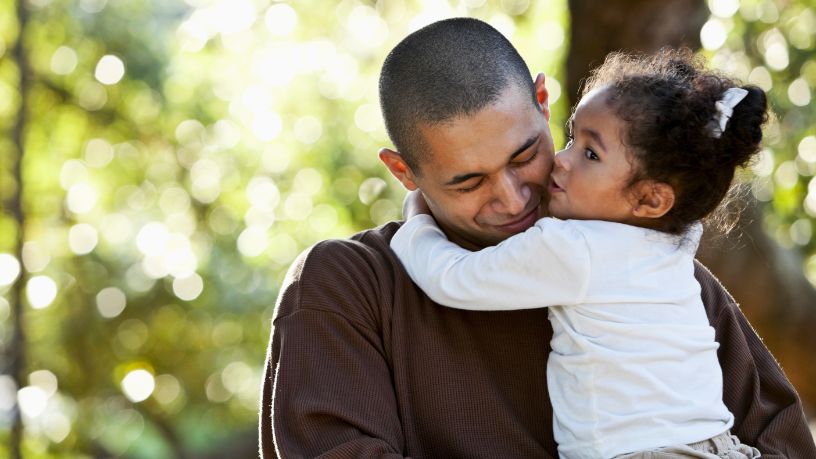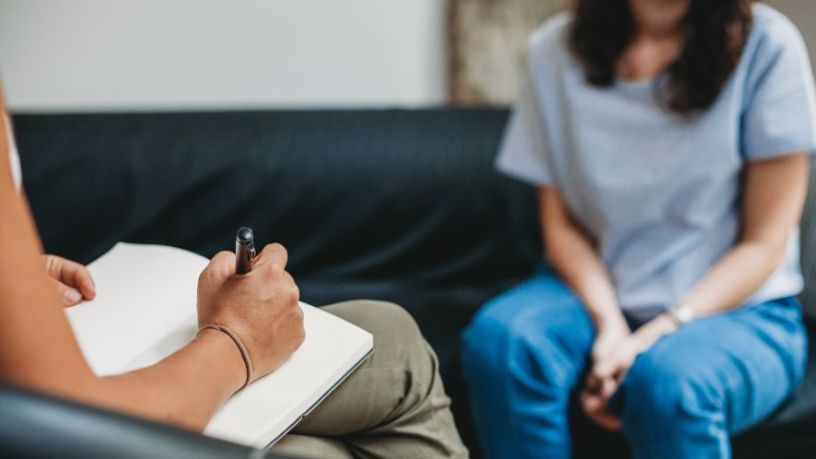Over the years, Penny has learned how to look after her mental health.
Key takeaways
Listening to her body and learning to say no were some of the things that helped Penny on her mental health journey.
Even if it doesn’t feel like it, help is always available. Discover how Penny reached out and got the support she needed.
Please note: This story touches on sensitive mental health topics, including suicide.
As a busy working mum to 2 young girls, life often feels like a constant juggle. Taking care of my mental health is key to making it all work, and is just as important as watching what I eat and making sure I exercise.
Over the years, I’ve learned to recognise what impacts how I’m feeling. But, like anything else, this takes time and practice. And I don’t always get it right.
Reaching out for help
One of the biggest lessons I had to learn about mental health was that it’s okay to ask for help. In fact, it’s essential.
When my first daughter was about 10 months old, I was really struggling. While I loved her desperately and she was perfect, I found myself crying all the time. One day, I had a thought of jumping off the cliffs near my home. I didn’t want to die, but I thought I’d be able to go to hospital for a few weeks and have someone take care of me and everything else.
I knew that wasn’t a normal thought, so I decided to go to my GP.
Even though I’d been feeling low for some time, I had resisted talking to someone about it. I was worried that my mother’s group would judge me, or that someone would say I wasn’t fit to be a mum and my daughter would be taken away.
The opposite turned out to be true. My GP was amazing and told me how normal my feelings were. I was diagnosed with postnatal depression and finally started getting the help and support I needed.
Learning to listen to your body
Over the years, I’ve learned to recognise warning signs that my mental health has changed. When I’m feeling especially overwhelmed or anxious, there’s a heaviness in my chest. This is my internal alarm telling me something isn’t right.
Almost anything can impact your mental health. For me, it has been triggered by bereavement, the loss of relationships and past trauma.
When I was 12 years old, I was placed into foster care for a year and was incredibly anxious during that time. The only places I felt safe were at school and at my best friend’s house. Even though I was almost a teenager, I slept with a comfort blanket. This was a long time ago, but past traumas don’t just go away, and those feelings can bubble up when you least expect it.
Sometimes, I can’t pinpoint what the reason is, but I can feel a change in my body. When it happens, I have to stop and think about what I need. I imagine my daughter telling me she feels this way. What would I suggest to her?
Recognising the triggers
We all have tough days, but there are things that can make a bad day feel terrible. Learning to recognise and manage those days has been an important learning curve for me.
For instance, while a glass of wine might sound soothing, I know that almost as soon as I have it, I’ll be beating myself up. I know alcohol is bad for me, that it makes any anxiety worse.
Feeling overwhelmed is another big trigger for me. I’m a people-pleaser and can say ‘yes’ when I really should say ‘no’. Over the past few years, I’ve consciously tried to say ‘no’ with confidence to things like dinner with friends when I already have 2 more in the diary that week. The people who love and care about you understand. The friends who tell you to slow down and then get annoyed when you aren’t free for drinks, on the other hand, aren’t true friends.
Learning to slow down has been a challenge, but I’m getting better at it. And self-care is now much more deliberate as I can see and feel what works for me.
Practising small acts of self-care and mindfulness
For me, one of the simplest acts of self-care is making my bed every morning. If there’s a lot going on and my mind is chaotic, achieving that small task makes me feel more in control. I’m a goal-oriented person, so it’s an easy win for me and helps me start my day right.
I also try to swim in the sea every day. There’s something about being in the ocean with my feet in the sand that makes me feel connected to a bigger world. I feel like the water washes a lot of anxiety away. I can go into the sea crying my eyes out, dive under a wave and come out smiling.
Another key coping strategy is exercise. Whenever I’m in a boxing or spin class, I feel a surge of positive energy all around me. I can let everything else go and stop worrying or thinking about anything (other than moving my arms and legs, that is).
Staying connected to healthy relationships
I used to hide my anxiety from friends. No matter what was happening, I’d smile through it and never talk about how I felt. But I’ve learned that doesn’t help me. What I need when I’m having a tough day is a hug and for someone to listen. My friends know not to offer advice or try to cure me. They just listen, and that’s enough.
I’m also quite open with my kids when I’m struggling. It’s important they know adults aren’t perfect, that we don’t have all the answers. I want my kids to know they can always talk to me when they feel sad or worried, too.
Finding options that work for you
The biggest thing I’ve learned about mental health is that what keeps us happy is different for everyone. When people tell me to get 9 hours of sleep every night and meditate every day, I want to laugh. Those things just don’t work for me. Find strategies and tools that actually help you, and don’t feel pressured to fit into a certain model.
I’ve also found talking to my GP or a mental health professional really supportive and helpful. I used to be scared of being labelled, but knowing that my feelings were also being felt by other people made me feel better and normalised my experience.
People are more open to talking about their mental health these days. And that can only be a good thing.
If you’re struggling, talk to someone you trust, or go to your GP who can refer you to a mental health professional. It changed my life for the better. It can change yours too.
This personal story is not intended to represent that the individual has used or endorses any specific health practitioner or program. Everyone’s health journey is individual and health outcomes can vary from person to person.
This article is not a replacement for personalised and specific medical, healthcare or other professional advice. If you have any concerns about your health, see your doctor or another health professional.
Are you in need of urgent support?
We've put together a list of services for free support that's relevant to where you live, and what you're going through.
Resources
Lifeline Australia offers 24/7 crisis support online and on the phone at 13 11 14.
Beyond Blue offers 24/7 mental health information and support online and on the phone at 1300 224 636.
Suicide Callback lets you chat with a professionally trained counsellor by phone, video call or online. Call 1300 659 467.
PANDA (Perinatal Anxiety & Depression Australia) supports the mental health of parents and families online and on the phone at 1300 726 306.

At Bupa, trust is everything
Our health and wellbeing information is regularly reviewed and maintained by a team of healthcare experts, to ensure its relevancy and accuracy. Everyone's health journey is unique and health outcomes vary from person to person.
This content is not a replacement for personalised and specific medical, healthcare, or other professional advice. If you have concerns about your health, see your doctor or other health professional.
You might also like...
Depression: Knowing the signs and finding help
Depression can look different for everyone. We spoke to a psychologist to find out how to recognise the symptoms of depression and where to get help.
What's the difference between anxiety and depression?
Anxiety and depression are common mental health conditions in Australia. Learn about the different signs and symptoms and where to get help.
Taking care of your mental health: Who do you call?
Looking for mental health support? Read this guide to find out what services are available.
Your guide to winter wellness
It can be pretty tempting to let your healthy habits hibernate over the winter months, so we’ve put together some essential winter wellness tips.





